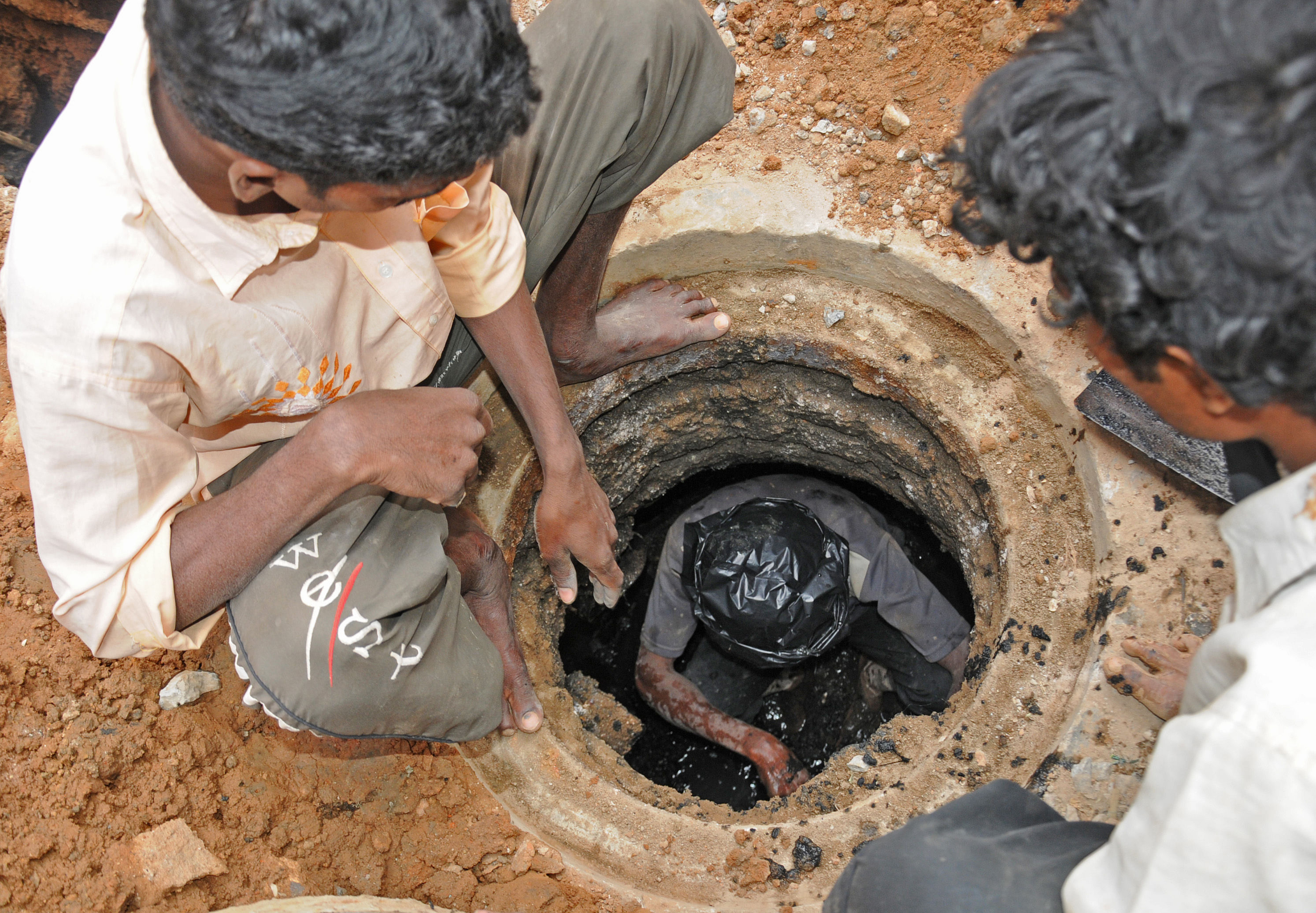
Just last fortnight, two men working at a tea stall in KG Halli got into a well to clean it. They choked to death even before they could reach the bottom. The well, reports say, was contaminated with sewage.
When Metrolife called up the police, they were reluctant to share details. Almost all cases remain inconclusive, and no one ever gets punished, despite the strigent legal provisions against manual scavenging (see box).
The latest incident took place two weeks ago, on April 27. The owner of the tea stall had asked one of his employees to clean the well.
Manual scavenging is a term used for the manual removal of untreated human excreta. The practice is prohibited by law.
Despite the staggering death numbers, not one case has resulted in a conviction. That is because the cases are booked under IPC section 304-A, which refers to deaths caused by negligence.
Of about 100 manual scavenging deaths recorded in the state since 2008, not even one has resulted in a conviction, legal experts and activists say.
Narasimhamurthy, activist and advocate, says none of the manual scavenging cases in the country has resulted in a conviction.
“Even the press speaks about the incidents for two-three days and everything settles down in no time. FIRs just remain as FIRs,” says Narasimhamurthy.
He saw a manual scavenging incident near Cubbon Park, and took it up. “The private agencies are brazen and practise this illegal act in the middle of the city in broad daylight,” he says.
He took the worker with him and filed a complaint against the private contractor, and the case has been going on for three years.
Bezwada Wilson, activist and national convenor of the Safai Karmachari Andolan (SKA), has been campaigning for the eradication of manual scavenging.
“People are dying every day. The government has to create awareness about manual scavengers. Stringent laws have to be enforced to prevent these deaths,” he says.
All cases are closed and deaths are passed off as accidents. “No one is convicted although it is clearly murder,” he says.
The solution is to mechanise all sewage cleaning.
“All the necessary technology is available in India. Humans should not be let in at any cost. If there is a necessity for a human to go in, oxygen cylinders and safety gear should be provided,” he asserts.
He calls for intervention at the prime ministerial level. “Swachh Bharat and other projects are secondary, manual scavenging has to be eradicated first,” he says.
Ravivarma Kumar, senior advocate, says the problem lies in the investigation procedure. “The prosecution and investigation are hand-in-glove with the perpetrators of the crime,” he says. The victims are voiceless and have no one to fight for them, while the officials and contractors play the system.
“The law is good. Karnataka abolished manual scavenging in 1973 and this was done even without any legislation. It is only 20 years later that Parliament enacted the law. It is sad that it is not being implemented properly,” Ravivarma Kumar says.
He holds the water supply and sewerage board singularly responsible for these deaths. They should use machinery and deploy their staff to clean the drains and manholes.
Not our fault, says BWSSB chief
Tushar Girinath, chairman of Bangalore Water Supply and Sewerage Board, blames private agencies for the deaths.
“We can’t be held responsible for this. Private agencies have to be checked and licensed by the BBMP. They should not be allowed to work at all if they do not have the equipment,” he says.
Sanitation workers must be trained to use the equipment and the BBMP should monitor their functioning, he says.
“General public should also be aware of the consequences of letting a human clean the manholes. Just to save a little money, they should not give in to manual scavenging. They should stop the private agencies if they are found doing it,” he adds.
Punishment
If the crime is committed by a private agency, the contractor is booked under The Prohibition of Employment as Manual Scavengers and their Rehabilitation Act, 2013.’ If convicted, the contractor and others responsible for manual scavenging could be jailed for up to 10years.
What happened to earlier cases?
January 7, 2018: Three workers were choked to death when they were cleaning a blocked manhole at Somasundarapalya, HSR Layout. They were not wearing any safety gear. Made Gowda, Nayayanaswamy and Srinivas, all between 30 and 35, had descended into the manhole, one after the other. Police filed a case of negligence against the private contractor.
Police take: We have completed the investigation and taken legal opinion. The Forensic Science Lab report is pending. That is why we are not able to file a charge sheet.
March 2, 2019: Begur police arrested the owner, principal and co-ordinator of Jaihind International School at Hongasandra. They were accused of making a daily wager clean a manhole. The worker died.
Police take: We have sought legal opinion, and sent samples to the forensics lab, and are awaiting a report.